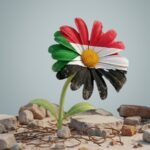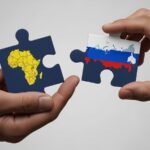In the vibrant yet volatile tapestry of Africa’s youngest sovereign state, South Sudan, the ongoing trial of suspended Vice-President Riek Machar stands as a stark emblem of the continent’s persistent battles against division, elite power struggles, and the lingering shadows of colonial legacies. Drawing from Pan-Africanist principles that emphasize collective self-reliance, mutual solidarity, and the rejection of internal strife that weakens the broader African agenda, this trial—now extended amid legal controversies and evidentiary disputes—threatens to dismantle the fragile unity forged after years of bloodshed. Charged with treason, murder, and crimes against humanity following a March 2025 militia assault in Nasir County, Machar’s case has evolved into a protracted legal drama, with recent sessions revealing battles over electronic evidence, calls for international forensic experts, and challenges to the court’s legitimacy. This expanded analysis explores the multifaceted historical roots, escalating crises, factional impasses, divergent peace strategies, entrenched disputes, and potential futures, weaving in comparative insights from across Africa to illuminate how South Sudan’s turmoil reflects wider continental challenges while highlighting opportunities for Pan-African-led renewal.
Echoes of the Past: Pan-Africanist Foundations and the Cycles of Violence in South Sudan’s Journey
The saga of political violence in South Sudan is inextricably linked to the Pan-Africanist dream of liberation from external oppression and the forging of cohesive nations. Yet, it is marred by internal fractures that echo broader African historical patterns. Born from the ashes of Sudan’s protracted civil wars, South Sudan’s 2011 independence was a beacon of hope, aligning with the anti-colonial fervor of Pan-African pioneers like Patrice Lumumba and Haile Selassie, who envisioned united African polities resilient against division. However, this triumph was short-lived, as deep-seated grievances—fueled by resource inequities, ethnic marginalization, and unaddressed wartime animosities—propelled the nation into chaos.
Delving deeper, the roots of this conflict can be traced back to the Sudanese People’s Liberation Movement/Army (SPLM/A) era, during the 1983–2005 civil war against Khartoum. Ideological splits, such as Machar’s 1991 defection from John Garang over demands for greater democracy and self-determination, foreshadowed future rifts. Post-independence, the 2005 Comprehensive Peace Agreement provided a blueprint for stability, but it failed to dismantle patronage systems tied to oil wealth, which constitutes the bulk of the state’s revenue. By 2013, Kiir’s ousting of Machar ignited a civil war that ravaged the land, killing hundreds of thousands and displacing millions, with atrocities including ethnic massacres and widespread sexual violence.
Comparatively, South Sudan’s trajectory parallels that of other African nations, where post-colonial state-building has faltered amid ethnic and resource conflicts. In the Democratic Republic of Congo, decades of violence stem from similar colonial manipulations of ethnic identities, leading to proxy wars over minerals akin to South Sudan’s oil disputes. Rwanda’s 1994 genocide highlights how elite orchestration of ethnic divisions can lead to cataclysmic outcomes, much like the Dinka-Nuer clashes in South Sudan. Even in West Africa, Mali’s Tuareg rebellions and Nigeria’s Boko Haram insurgency illustrate how marginalization breeds insurgencies, underscoring a continent-wide pattern where weak institutions and economic disparities perpetuate cycles of violence. In South Sudan, these dynamics are exacerbated by environmental factors such as flooding and climate-induced resource scarcity, which intensify communal tensions. Machar’s trial, amid ongoing skirmishes that have killed nearly 2,000 this year alone, thus represents not merely a personal reckoning but a litmus test for whether Pan-Africanist ideals can prevail over these inherited divisions, urging a recommitment to inclusive histories that honor diverse ethnic narratives.
Unraveling the South Sudanese Puzzle: Layers of Crisis, Ethnic Dynamics, and Power Elites
South Sudan’s current predicament forms a complex mosaic of interlocking crises, where ethnic identities, economic vulnerabilities, and elite maneuvering converge to fuel instability, with Machar’s trial serving as a flashpoint that could ignite broader conflagration. The Nasir incident in March 2025, where Nuer-affiliated White Army militias clashed with government forces, resulting in soldier deaths and retaliatory airstrikes that harmed civilians, has ballooned into a national crisis. This event, coupled with Machar’s suspension, house arrest, and the arrest of over two dozen SPLM-IO affiliates, reflects a calculated effort by Kiir’s administration to neutralize opposition, especially as succession rumors swirl around figures like Benjamin Bol Mel.
Expanding the context, the crisis is underpinned by profound economic distress, including hyperinflation, currency devaluation, and oil production disruptions due to pipeline issues with Sudan, which have left the economy in tatters. As a result, over 80% of the population relies on humanitarian aid. Ethnic dimensions add layers of complexity, as the conflict’s spread to multiple states has displaced hundreds of thousands more in 2025, echoing the 2013 war’s ethnic targeting. Yet, analysis reveals that ethnicity is often a proxy for deeper issues—elite competition for state resources—rather than the root cause, a pattern seen in Ethiopia’s Tigray conflict, where federal-regional power struggles masqueraded as ethnic disputes.
Within a Pan-Africanist framework, this conundrum necessitates the recognition of South Sudan’s ethnic pluralism as a strength, comparable to Tanzania’s successful integration under Nyerere’s Ujamaa philosophy. However, the trial’s procedural irregularities—such as debates over leaked audio, expired court mandates, and contested electronic evidence—underscore institutional fragility, which risks perceptions of judicial bias and further erodes trust. Comparative lenses from Africa’s Sahel region, where jihadist insurgencies thrive on state weakness, warn that unchecked elite rivalries could lead to state collapse, emphasizing the need for grassroots mechanisms to address these intertwined crises.
Bridging the Divide: The SPLM-IO and SPLM-IG in the Arena of Political Dialogue
The enduring schism between the SPLM-IO, led by Machar, and the SPLM-IG, led by Kiir, encapsulates a fundamental dilemma in South Sudan’s political landscape: reconciling former comrades-turned-adversaries through dialogue amid mutual distrust and fragmented loyalties. Originating from the SPLM’s internal fractures in 2013, when Kiir accused Machar of plotting a coup, the SPLM-IO emerged as a rebel faction advocating for federalism and power devolution, contrasting with the SPLM-IG’s centralized approach. The 2015 Agreement on the Resolution of the Conflict and the 2018 Revitalized Peace Agreement attempted to mend this, reinstating Machar as vice president and establishing a unity government. Yet, implementation has stalled due to disputes over military integration and the allocation of resources.
A deeper historical examination reveals how these factions evolved from the SPLM/A’s guerrilla roots, where ideological debates—between Garang’s unionism and Machar’s separatism—laid the groundwork for division. Current status shows escalating tensions: SPLM-IO spokespeople decry the trial as a peace agreement violation, while SPLM-IG insists on accountability, amid reports of defections and proxy support from external actors like Sudan. Comparatively, this mirrors Mozambique’s FRELIMO-RENAMO rivalry, where post-civil war dialogues eventually yielded stability through disarmament and electoral reforms. Similarly, Angola’s MPLA-UNITA reconciliation required international guarantees.
From a Pan-Africanist vantage, navigating this dilemma requires elevating dialogue beyond elite pacts to include civil society and women-led initiatives, fostering a transformative politics that views factions as complementary forces in nation-building. The trial’s recent adjournments for expert testimony highlight opportunities for procedural fairness to rebuild bridges, preventing a slide back to all-out war.
Harmonizing Peace Initiatives: AU-UN Collaborations in Contrast to EU-US Approaches
Peace efforts in South Sudan present a compelling comparative study of African-centered versus Western-influenced strategies, revealing both synergies and frictions in roles played by the AU, UN, EU, and US. The AU, through IGAD, has been pivotal in brokering the 2015 and 2018 accords, emphasizing regional ownership and deploying observers to monitor ceasefires. Partnering with the UN via UNMISS, which protects civilians and facilitates humanitarian access, these efforts prioritize holistic, long-term stability, as seen in recent AU field missions that have urged due process in Machar’s trial.
In contrast, EU and US interventions focus on targeted sanctions—imposed on over a dozen individuals since 2014—and conditional aid, with the US advocating arms embargoes and the EU channeling funds for governance reforms. While these have pressured spoilers, they sometimes clash with African-led processes, which are perceived as paternalistic, akin to criticisms in Somalia, where UN-AU missions (AMISOM) have outpaced Western timelines for sustainability.
An analytical comparison reveals that AU-UN synergies excel in cultural relevance and mediation, reducing violence in Burundi-like scenarios. In contrast, EU-US tools are effective for short-term deterrence but risk alienating locals, as seen in Mali’s MINUSMA mission. For South Sudan, harmonizing these—perhaps through joint tribunals or enhanced AU funding—could amplify Pan-Africanist peace, ensuring initiatives respect sovereignty while addressing impunity.
Overcoming Obstacles: Persistent Disputes in South Sudan’s Quest for Dialogue
South Sudan’s political dialogue is beset by multifaceted challenges, from eroded trust to logistical barriers, with disputes over the pillars of the 2018 agreement—security sector reform, constitutional drafting, and elections—remaining unresolved. Machar’s trial exacerbates these issues, with defense objections to evidence and concerns about court legitimacy fueling accusations of politicized justice, while government reshuffles signal power grabs.
Contextually, these mirror Libya’s fragmented talks or the Central African Republic’s rebel integrations, where external meddling complicates resolutions. Economic disputes, such as oil revenue sharing and inter-militia clashes, add layers, demanding Pan-Africanist solutions that prioritize accountability without resorting to vengeance.
Visions of Renewal: Charting South Sudan’s Future via Pan-African Peacebuilding
Envisioning ahead, South Sudan’s trajectory post-Machar’s trial hinges on averting war through inclusive reforms, potentially via resumed Tumaini talks or bolstered AU-UN mediation. Risks of escalation loom, but comparative successes—like Liberia’s post-war recovery through disarmament and youth programs—offer blueprints. Embracing Pan-African solidarity, South Sudan can diversify its economy beyond oil, invest in education, and empower local peace committees, thereby transforming adversity into a model of continental resilience and unity.










